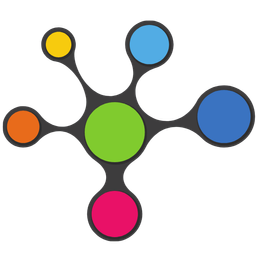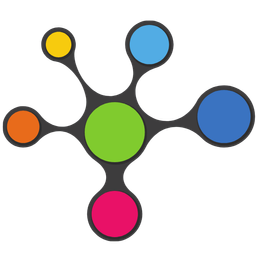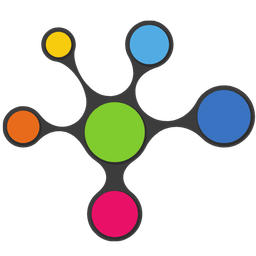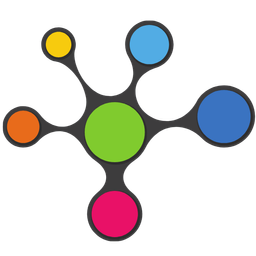💡 TL;DR - The 30 Seconds Version
🎯 Anthropic now lets Claude users build and share AI-powered apps with zero deployment costs or server management required.
💰 When someone uses your app, their API usage counts against their own Claude subscription, not yours—you pay nothing.
🔧 Users describe their idea and Claude writes the complete code, handling prompt engineering, error handling, and AI orchestration automatically.
📱 Early apps include AI-powered games with memory, personalized tutoring tools, and data analysis apps that understand natural language questions.
⚠️ Current limits include no external API calls, no persistent storage, and text-only completion API access.
🚀 This removes the main barrier that killed experimental AI apps—creators can now build viral tools without facing crushing API bills.
Anthropic just solved one of AI development's biggest headaches. The company announced that Claude users can now build, host, and share interactive AI-powered apps directly in the Claude interface—no deployment needed.
Here's the key innovation: When someone uses your Claude-powered app, their API usage counts against their own subscription, not yours. You pay nothing for their usage. No one needs to manage API keys. The economics finally work for sharing AI apps.
Claude writes real code that orchestrates complex AI functionality. You can see it, modify it, and share it freely. Users authenticate with their existing Claude accounts, and the system handles the rest.
The deployment problem
Building AI apps has always been straightforward. Sharing them? That's where things got expensive fast. Developers faced a choice: absorb mounting API costs as usage grew, or charge users upfront. Neither option worked well for experimentation or viral apps.
Traditional hosting meant setting up servers, managing authentication, handling API rate limits, and watching costs spiral with each new user. Many promising AI apps died in development because creators couldn't afford to scale them.
What users are building
Early adopters are already pushing the boundaries:
AI-powered games feature NPCs that remember conversations and adapt to player choices. Learning tools adjust to individual skill levels and provide personalized tutoring. Data analysis apps let users upload CSVs and ask follow-up questions in natural language.
Writing assistants help with everything from scripts to technical documentation. Agent workflows orchestrate multiple Claude calls for complex tasks. The variety suggests people see possibilities beyond typical chatbot interfaces.
How it works
The process starts with a conversation. Describe what you want to create, and Claude writes the code. As you work together, Claude debugs and improves its own code based on your feedback.
Claude handles prompt engineering, error handling, and orchestration logic. You focus on bringing your idea to life. Once your app is ready, you share it through a link. No deployment process needed.
Users can process files, create rich interfaces with React, and see the code behind any artifact. They can fork and customize existing creations, building on others' work.
Current limits
The system has boundaries. No external API calls yet—everything runs through Claude's completion API. No persistent storage means apps reset between sessions. The text-based API limits some interaction types.
These constraints might actually help. They force creators to focus on core functionality rather than getting lost in infrastructure complexity. The limitations feel temporary, likely to expand as the system proves itself.
The sharing economics
This changes how AI apps spread. Previously, viral success meant financial disaster for creators. Popular apps could rack up thousands in API costs overnight. Now, usage scales with the user base's collective subscriptions rather than the creator's wallet.
The model works because Anthropic captures value through subscriptions rather than per-use fees charged to developers. More apps mean more engaged users, who are more likely to maintain or upgrade their subscriptions.
Democratizing AI development
Anthropic is betting that removing deployment friction will unleash creativity. Instead of a few well-funded apps, we might see thousands of specialized tools solving niche problems.
The approach mirrors how website creation evolved. Early web development required server management and technical expertise. Platforms like WordPress and Squarespace removed those barriers, leading to an explosion of content creation.
The same pattern could emerge for AI apps. When anyone can build and share AI-powered tools without worrying about costs or infrastructure, the variety of applications should multiply rapidly.
Why this matters:
- AI app development just became accessible to anyone who can describe their idea clearly—no coding or deployment expertise required
- The cost barrier that killed most experimental AI apps disappeared, potentially unleashing a wave of creative applications we haven't seen before
❓ Frequently Asked Questions
Q: Do I need a paid Claude subscription to use apps that others create?
A: Yes. When you use someone's Claude-powered app, the API calls count against your own Claude subscription (Free, Pro, or Max). The app creator pays nothing for your usage—you're essentially using your own Claude allowance through their interface.
Q: What happens to my app data when I close it?
A: Apps reset between sessions since there's no persistent storage yet. Any files you upload, conversations you have, or data you generate disappears when you close the app. Each time you open it, you start fresh.
Q: Can I modify and share someone else's Claude app?
A: Yes. You can see the code behind any artifact, fork it, and customize it however you want. This creates a GitHub-like environment where people build on each other's work and share improvements.
Q: Why can't these apps connect to external APIs like weather services or databases?
A: Anthropic currently limits apps to Claude's text completion API only. No external API calls are allowed yet. This keeps things simple and secure but means apps can't pull live data from outside sources.
Q: How much does it cost to create and share an AI app?
A: Creating apps is free—just describe your idea to Claude and it writes the code. Sharing costs nothing either since users consume their own API allowances. You only pay for your Claude subscription, regardless of how many people use your apps.
















